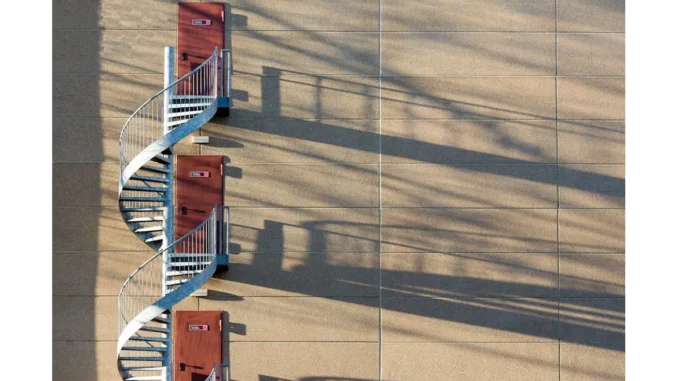
As the new Prime Minister takes the reins, there is a palpable anticipation among the British public and various industries for decisive leadership and effective measures. One critical area necessitating immediate attention is fire safety, particularly the standards regulating composite fire doors. In an insightful discussion with Owen Jones, Technical Director at Distinction Doors, the importance of third-party certification in the UK composite fire door market was brought into sharp focus.
Need a mortgage? Focus360 Energy provides Professional Consultant Certificates. Learn more.
Owen Jones is a staunch advocate for rigorous fire safety standards, and his perspectives underscore the necessity of making third-party certification a mandatory criterion for composite fire doors. The current regulatory framework for composite fire doors is governed by the Building Regulations, which require these doors to pass comprehensive tests such as BS 476-22:1987 or the European standard BS EN 1634-1:2014. These tests ensure that the doors provide a minimum of 30 minutes of fire integrity. However, as Jones elucidates, the responsibility for approving and managing compliant composite fire doorsets falls on building inspectors and clients. Despite this, third-party certification schemes that go beyond these requirements are not legally mandated, a gap that Jones believes compromises the consistency and reliability of fire doors.
Jones argues that there is ample evidence and support for formalising the additional security offered by UKAS accredited third-party certification schemes. Third-party certification schemes, such as those provided by UL, IFC, Blue Sky Certification, and BM Trada’s Q-Mark, offer an extra layer of assurance. These schemes surpass basic legal requirements by ensuring consistent quality and performance through regular audits of manufacturing facilities and audit testing. Distinction Doors, for instance, mandates that their manufacturing partners adhere to the non-mandatory requirements of BM Trada’s Q-Mark Composite Fire Door schemes STD 170 and STD 50. This level of scrutiny, Jones asserts, results in a highly compelling product offering, with the certification held publicly accessible and subject to withdrawal or suspension in cases of non-conformance.
The conversation also highlighted the differences between external and internal fire doorsets. Beyond the Building Regulations, the Construction Products Regulation (CPR) in England, Scotland, and Wales now mandates that component parts under a harmonised or designated standard carry a UK Conformity Assessed (UKCA) mark. This requirement currently applies exclusively to external fire doorsets, although Jones anticipates that internal fire doorsets will soon be subject to similar standards. To legally supply fire doorsets for external use, manufacturers must first obtain UKCA accreditation, which authorises the production of UKCA marked external fire doorsets and issues a Declaration of Performance (DoP) referencing both BS EN 14351-1 and BS EN 16034 standards for compliance.
However, Jones points out the limitations of the UKCA mark. While it represents progress, UKCA mark conformity lacks the comprehensive control of third-party certification schemes. This is primarily due to the absence of regular external auditing, which allows non-conformance to persist unchecked. Nevertheless, recent initiatives by the Office for Product Safety and Standards (OPSS) offer some optimism. The OPSS has been auditing fire door manufacturers against UKCA mark requirements, scrutinising control systems, training records, and technical documentation. Although these audits are not as exhaustive as those conducted by BM Trada, they represent a positive development.
Owen Jones’s viewpoint is unequivocal: the UK composite fire door market stands to gain significantly from mandatory third-party certification. Many contemporary composite fire door manufacturers and suppliers endeavour to exceed standards and deliver the most robust and proven fire door solutions available. By integrating third-party certification into legal requirements, the industry can ensure consistent performance, compliance, and heightened safety.
In summary, Jones’s commitment to fire safety is both deeply personal and professional. His advocacy for higher standards and proactive measures serves as a timely reminder of the paramount importance of fire door integrity. In an environment where safety can never be compromised, third-party certification offers the reassurance that both consumers and professionals need.


Be the first to comment